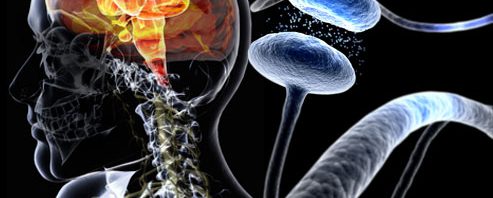This week in Neurochemistry class, we talked about one of the many mysterious neurodegenerative disorders; Parkinson’s Disease.
I like to think of the brain as an orchestra, and Parkinson’s as a conductor with a terrible sense of time.

Normally, the conductor guides the orchestra through their music, producing a smooth, synchronized sound (coordinated movement).
However, the conductor of someone with Parkinson’s is unable to keep their orchestra on the same page—the music stutters, stops, and lags. Unfortunately, no one knows why the conductor is having these issues.
Some musicians give up and leave the concert (neuronal death), and the ones who think “The show must go on!” stay and try to compensate for the missing instruments (the excess firing leading to jerky movement).
Current research is trying to figure out what is causing the conductor to lose their ability to coordinate the band. What causes it? Is it related to age? Is it related to diet or head trauma?
That’s the thing; no one knows.
We talked a lot about what potential causes of PD are, but really, the class left me with more questions than answers.
It was very beneficial for me to understand the different things that may cause Parkinson’s. It made me understand that even though we are still a long way away from fully understanding this disease, we are a lot further along than I had known.
As we all know, the brain is the most complex piece of machinery on this planet. There are so many different reactions going on in our heads it is hard to imagine that errors such as PD only happen in about seven to ten million people worldwide (which is only about 1% of the entire world’s population).
But, why does this matter? What’s the big deal about Parkinson’s?
Well, it’s a big deal because not only are brain cells dying in certain areas, but those diagnosed are more cognitively aware of what is happening compared to those with Alzheimer’s.
Unlike Alzheimer’s and much like some cancers, patients with PD are fully aware that they are losing their ability to control their movement, which will impact their independence and ability to communicate.
Although it does not affect most of the population, it is important that we help those that are affected by understanding the disorder.

Parkinson’s is a neurodegenerative disorder that involves the loss of ability to coordinate movement, which is why one of the stereotypical symptoms of PD is jerky movements. Some people who are affected have trouble walking, sitting, and even talking.
The neurons that are dying in the brain are causing this effect. The death is occurring in specific areas of the brain that are associated with movement. The problem is, as I’ve mentioned before, we don’t know what is causing these cells to die exactly.
Studies have found many links to neuronal death, such as excess “bad” proteins in cells, too much activation of particular cells, causing overexcitation and then death, etc, but an answer is still unknown.
Each research study is getting us one step closer to determining how to prevent, treat, and cure Parkinson’s by figuring out how to get the brain’s conductor back on track.


